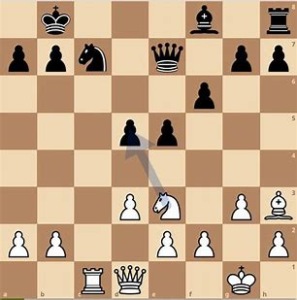The Ultimate Guide to Winning More Games In Chess
Chess Strategy and Tactics: The Ultimate Guide to Winning More Games
Chess is a game of intellect, foresight, and calculated moves. While every player knows the importance of strategy and tactics, few fully understand how to master these two fundamental aspects. Let’s explore what makes strategy and tactics the cornerstone of chess success—and how you can use them to improve your game.
What is Chess Strategy?
Strategy in chess is the long-term plan that guides your decisions throughout the game. It focuses on building a solid foundation for your moves and positions. Think of it as the big picture—setting yourself up for success by controlling key areas of the board, safeguarding your king, and optimizing your piece placement.
Key Strategic Principles
- King Safety: Always keep your king safe by castling early and avoiding unnecessary risks.
- Control the Center: The four central squares (e4, d4, e5, d5) are crucial. Controlling them gives your pieces mobility and power.
- Piece Activity: Develop your pieces quickly and place them on squares where they are most effective.
- Pawn Structure: Pawns are the soul of chess! Avoid weaknesses like isolated or doubled pawns, and create a strong, harmonious pawn chain.
- Space Advantage: Having more control over the board limits your opponent’s moves and opens opportunities for attack.

What Are Chess Tactics?
Tactics involve short-term, concrete moves designed to gain a decisive advantage, such as winning material or delivering checkmate. Unlike strategy, tactics focus on immediate opportunities, often arising unexpectedly in the middle of the game.
Essential Tactical Motifs
- Forks: One piece attacks two or more enemy pieces simultaneously.
- Pins: A piece is immobilized because moving it would expose a more valuable piece behind it.
- Skewers: Forcing a valuable piece to move, exposing a less valuable piece.
- Discovered Attacks: A hidden threat is revealed when one piece moves.
- Back Rank Checkmates: Capitalizing on a poorly defended back rank to checkmate the opponent’s king.

How Strategy and Tactics Work Together
Strategy and tactics are like the heart and brain of chess—they function best when they work in harmony. Strategy sets the stage, and tactics capitalize on opportunities.
Example:
- Strategy: You dominate the center and position your rook on an open file.
- Tactics: A tactical combination allows your rook to deliver a back-rank checkmate.
Without a good strategy, tactics may never arise. Conversely, a great strategy is useless if you miss tactical opportunities.

Practical Tips to Master Strategy and Tactics
- Analyze Classic Games: Learn how grandmasters balance strategy and tactics by studying famous games.
- Solve Puzzles Daily: Regularly practicing tactical puzzles improves your pattern recognition and decision-making.
- Understand Pawn Play: Your pawns shape the battlefield; mastering pawn structure is critical for strategic play.
- Review Your Games: Reflect on past games to identify mistakes and missed opportunities.
Why Should You Focus on Strategy and Tactics?
Improving your strategic and tactical skills offers numerous benefits:
- Increased Confidence: You’ll feel prepared for every phase of the game.
- Better Endgames: Good strategy often leads to smoother transitions to winning endgames.
- Stronger Results: Recognizing and exploiting opportunities improves your win rate.
Your Next Steps
Mastering chess strategy and tactics is a journey, but every small improvement takes you closer to becoming a formidable player. Whether you’re a beginner or an experienced player, focusing on the following aspects can significantly enhance your skills:
- Understand Key Patterns: Study common patterns in openings, middle games, and endgames to recognize and exploit opportunities effectively.
- Analyze Your Games: Review your past games to learn from mistakes and identify areas for improvement.
- Practice Consistently: Dedicate regular time to playing and solving chess puzzles to sharpen both your tactical and strategic thinking.
- Learn from Strong Players: Observing and analyzing games played by advanced players can inspire new strategies and broaden your understanding of the game.
- Maintain Mental Agility: Chess demands focus, patience, and adaptability. Exercises in mindfulness and mental stamina can greatly benefit your gameplay.
Remember, chess mastery is about progression, not perfection. Keep challenging yourself, and you’ll see your skills flourish!
